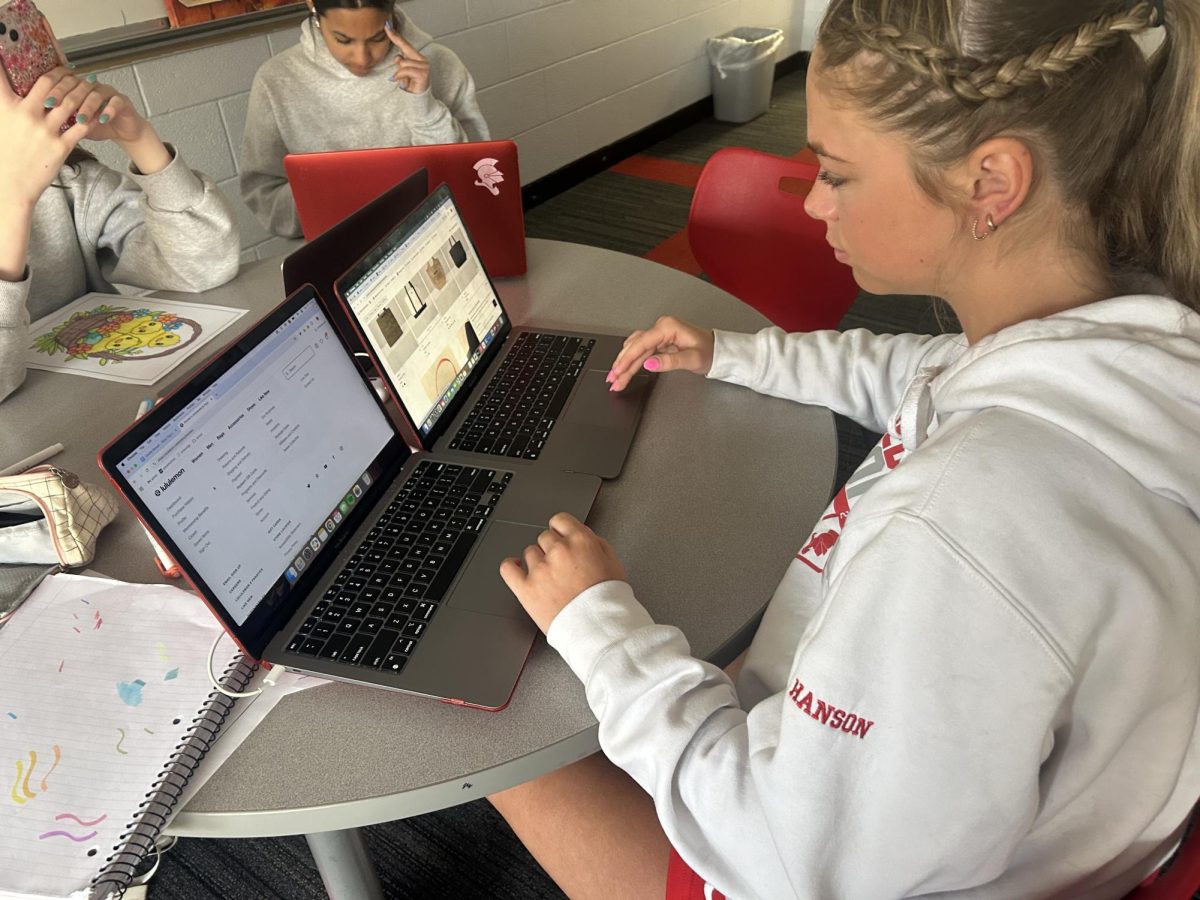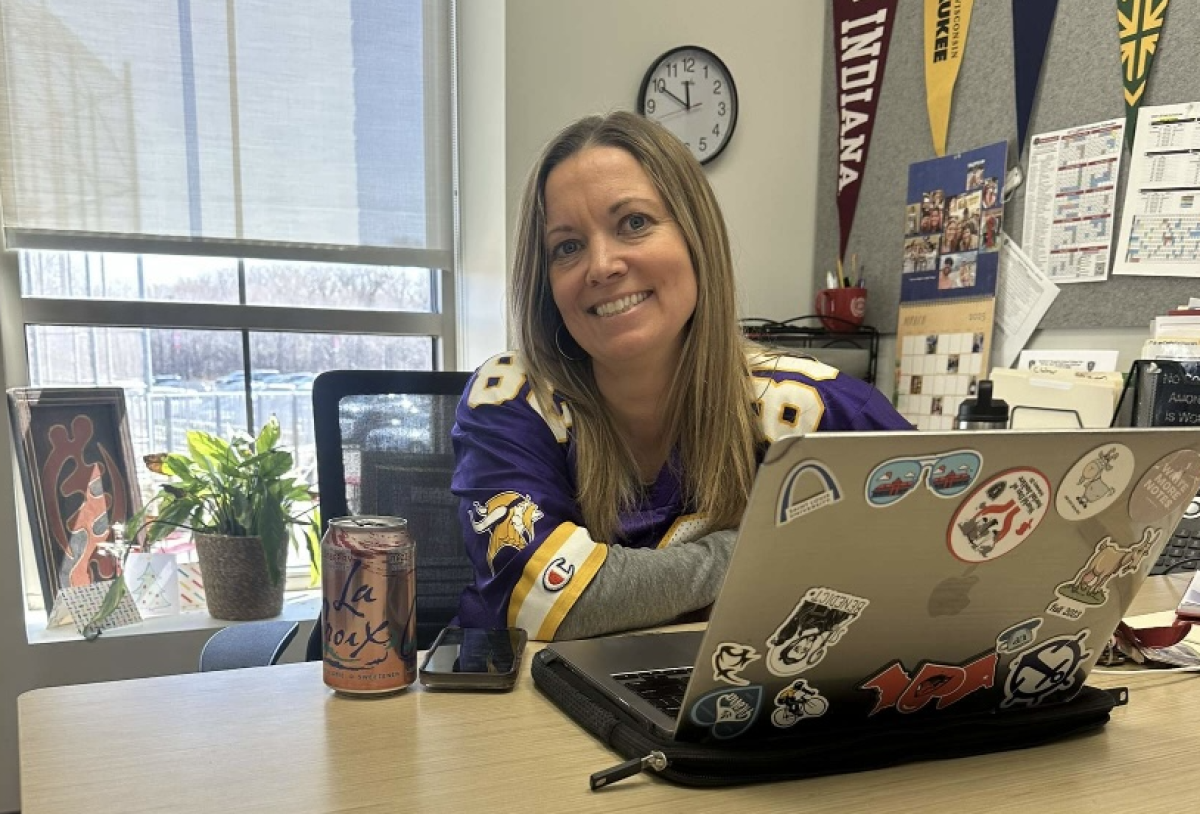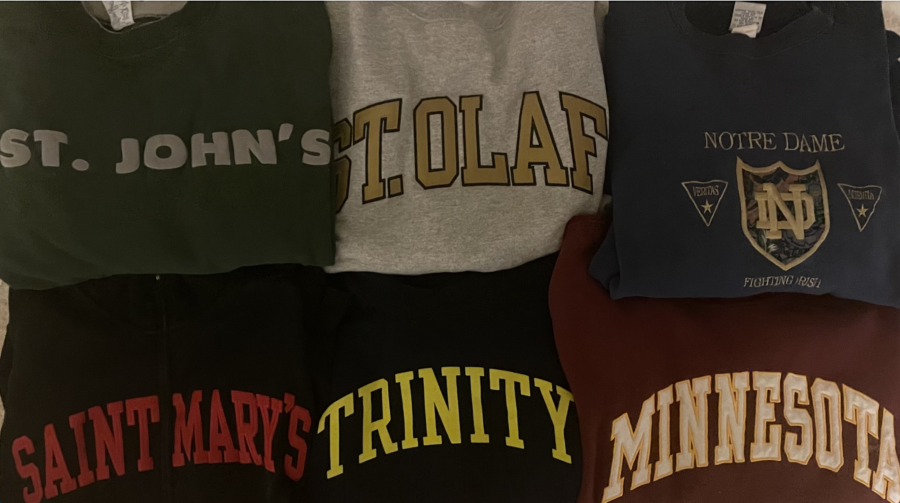Inside the Commitment Process of Student-Athletes
High school students have many colleges to choose from.
High schoolers have a lot on their plates when it comes to prepping for college. Sports are typically an escape for students from the demanding cycle of things like grades, ACT testing, and campus tours–that is until sports become a part of the college endeavors. Committing for a college sport is an equally exciting and stressful process that dictates high school students’ athletic and academic futures.
The overall percentage of high school students going on to play a NCAA (National Collegiate Athletic Association) sport in any of the three divisions is less than 8%. These difficult odds facing athletes can easily make the college sports commitment process a whirlwind. BSM junior Izzy Saffert, who is currently in the recruiting process for volleyball, is experiencing this firsthand. She has been reaching out to schools for about a year now, and is looking forward to hopefully completing her recruiting soon.“It’s very overwhelming, but it’s been good…I take into account the academics, making sure they have the major I want, and then I’m just looking at the team seeing how many people in my position they carry,” Saffert said.
As Saffert mentioned, considering a team’s existing college players is just as important as competing for a spot with other high school athletes. COVID-19 heavily impacted the usual flow of college sports commitments. The NCAA granted students whose 2020-2021 college sport seasons were affected by the pandemic one year of eligibility in an attempt to make up for lost time playing the sport due to Covid-19. College athletes who qualify for this now have “6 years to compete in 4 full seasons of their sport in college. Traditionally, there is a 5-year clock for athletes to play 4 years.” Unfortunately, this changes things for incoming classes. College teams are now graduating less players due to extra Covid-19 eligibility, leaving less room on rosters and making the overall process more difficult.
Perseverance and hard work are definitely required for this process. BSM Senior Morgan Olson, who will be attending and playing soccer at the University of Portland in Portland, Oregon next fall, knows all about this after undergoing the college soccer commitment process. “It was kind of frustrating because a lot of schools that I was interested in, they didn’t respond or, if they did seem interested in me, they would lead me on and then kind of like stop talking to me…it was definitely challenging, but I mean, in the end it was worth it,” Olson said.
For those in the college sport commitment process right now, one of the best solutions to all of the stress and pressure is talking to someone who has already gone through it, like Olson. “I would say just don’t give up no matter what happens, like if you are talking to a school and they cut off communication, don’t give up, just keep looking for schools, that’s just gonna happen. And then also, again, a lot of the recruiting process is on you and not the coaches. So don’t rely on the coaches but rely on yourself to make that first initial step,” Olson said.
Although the college sport commitment process is one of the most daunting things to go through as a high school student, it is also one of the most rewarding.




































![Teacher Lore: Mr. Hillman [Podcast]](https://bsmknighterrant.org/wp-content/uploads/2025/03/teacherlorelogo-1200x685.png)





